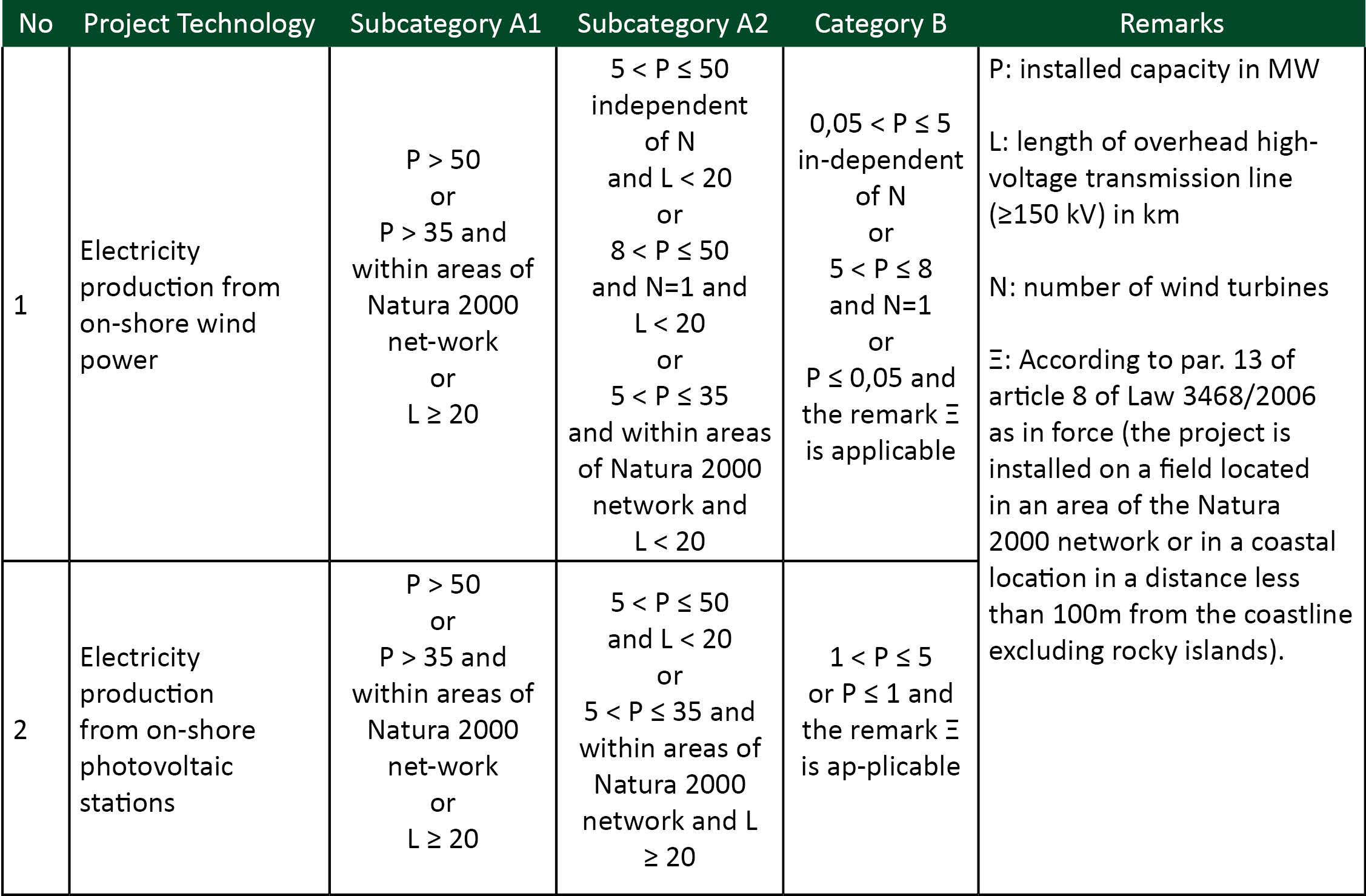Security Alert

By virtue of the Council of State’s (“CoS”) decision 1885/2023, certain provisions of previous ministerial decisions (“MDs”) on environmental licensing classification of specific types of RES projects1 were annulled on account of the underlying justification for the classification of RES projects on lower environmental clearance categories than the ones previously applicable not being sufficient. This created an onerous licensing reality for a wide circle of stakeholders licensed under the contested MDs since following the issuance of the aforementioned decision of the CoS, their respective environmental clearances were deprived from their legal basis. The matter was addressed by the Administration, albeit on a temporary basis, through the issuance of a circular which explicitly stated that the CoS decision did not have an impact on projects which were already licensed in accordance with the annulled MDs prior to the Court’s judgment. However, the underlying issue of the legality of such environmental clearances remained. The new Ministerial Decision (the “Reclassification MD”) will hopefully put an end to this uncertainty by properly justifying the reclassification whereby specific categories of projects are placed under a less rigorous environmental clearance regime.
Specifically, the Reclassification MD amends previous ministerial decision 37674/2016 on environmental classification (Government Gazette B’ 2471), as in force, by replacing its provisions for onshore wind power production and photovoltaic power production, as per the following table:

Further, in order to ensure as possible a smooth transition to the new classification regime, the Reclassification MD includes several key provisions as follows:
Environmental Licensing for new projects:
Projects that have already submitted an Environmental Impact Assessment (“EIA”) or environmental study for the modification/renewal of the Approval of Environmental Terms (“AET”), or an application for the issuance of Standardised Environmental Commitments (“SEC”) before the enactment of the Reclassification MD, may either follow the previous regime (i.e. the regime enacted by the 2016 MD prior to its amendment by the contested and already annulled acts) or adhere to the new regime upon project holder’s request. Switching into the new regime would notably be beneficial for projects which initiated the procedure for obtaining an AET but following the issuance of the new MD are eligible to obtain SEC.
Project Modifications and Existing Permits:
When modifying project features, for projects reclassified from “Category B” to “Category A”, under the Reclassification MD, the environmental licensing process must be re-initiated and an AET is to be issued for the entirety of the project. Importantly, the SEC will remain in force, until the issuance of the new AET.
Projects which have been granted environmental clearances on the basis of the MDs which have been annulled by virtue of CoS decision no 1885/2023 have a two-year time period to issue the pertinent licence in accordance with the recently enacted MD. This will notably affect projects which under the previous regime were classified as falling within category B and now fall within the ambit of category A2 and will need to issue an AET or projects which fell within category A2 and now are classified in category A1 and will need to “upgrade” their AET.
The Reclassification MD in its supplementary remarks to the above-provided classification table references, inter alia, an important alteration to legal notion of “environmental fragmentation”, through the expansion of the criteria under which the relevant practice shall be assessed. Namely, the artificial fragmentation notion shall henceforth capture not only projects which are being developed by the same legal entities or entities with the same shareholders but also projects being developed by distinct legal entities that are, however, in apparent agreement in terms of their respective development, following a parallel licensing process and being located in proximity to one another.
The Reclassification MD aims to update the classification and environmental licensing regime for most renewable energy projects in Greece, as necessitated by CoS decision 1885/2023 on the basis of new technical and scientific data which will hopefully justify following a less rigorous environmental clearance approach for specific categories of projects. Among its key requirements is the “upgrading” within a specific period of the environmental clearances issued under the previous regime which was found to be incompatible with the constitutionally enshrined principles of environmental protection by CoS decision 1885/2023. Besides the purely bureaucratic nature of such a requirement, this is also expected to create uncertainty in projects which will need to issue new licences since the latter will, among other things, be open both to the Administration’s scrutiny but also potentially subject to challenges.
I.e. Ministerial Decision 74463/4562/29.7.2020 (Government Gazette B’ 3291) and Ministerial Decision 17185/1069/24.02.2022 (Government Gazette B’ 841).